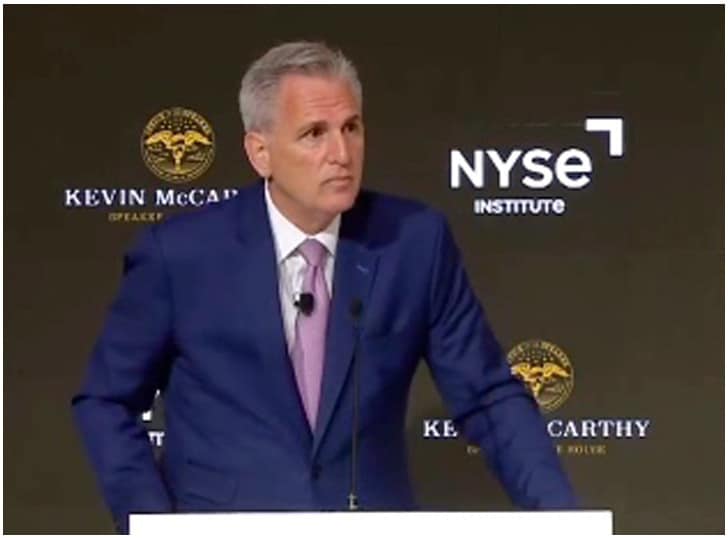The Republican-led House on Wednesday voted 217-215 to pass Speaker Kevin McCarthy’s proposed legislation to cut spending for a decade in exchange for a short-term debt ceiling hike.
The two-vote victory came after McCarthy (R-CA) amended the bill—even though he had just hours earlier told reporters he was not entertaining any more changes to the legislation.
Changes included restoring tax breaks for biofuels, speeding up the timeline for tougher work requirements for Medicaid recipients, and allowing the possibility for future cuts to veterans’ benefits.
As-is, the House bill has very little chance of passing in the Democratic-controlled Senate. Even if it did pass, President Biden has threatened to veto what he called “a reckless attempt to extract extreme concessions.”
Three of the four Republican “no” votes Wednesday were from members of the right-wing Freedom Caucus—Reps. Andy Biggs (AZ), Ken Buck (CO) and Matt Gaetz (FL)—who have asserted that the bill doesn’t go far enough.
The fourth Republican, Rep. Tim Burchett of Tennessee, has derided the idea of raising the debt ceiling on principle.
The federal government hit its $31.4 trillion debt limit on January 19, at which time the U.S. Treasury undertook what Secretary Janet Yellen called “extraordinary measures” to prevent defaulting on the debt.
However, both Yellen and the non-partisan Congressional Budget Office (CBO) have warned that those measures will run out some time this summer—possibly as early as June.
That, Yellen has cautioned, would spell economic “catastrophe” for the country.
“Household payments on mortgages, auto loans, and credit cards would rise, and American businesses would see credit markets deteriorate,” she said. “On top of that, it is unlikely that the federal government would be able to issue payments to millions of Americans, including our military families and seniors who rely on Social Security.”
Wall Street analysts have further cautioned that a stock market plunge as a result of debt default could wipe out 6 million jobs and $15 trillion in wealth.
The United States has never defaulted on its debt. But it has repeatedly come close, perhaps most notably in 2011 when the U.S. suffered its only credit rating downgrade in its history, amid the rise of the conservative tea party movement in the House.


